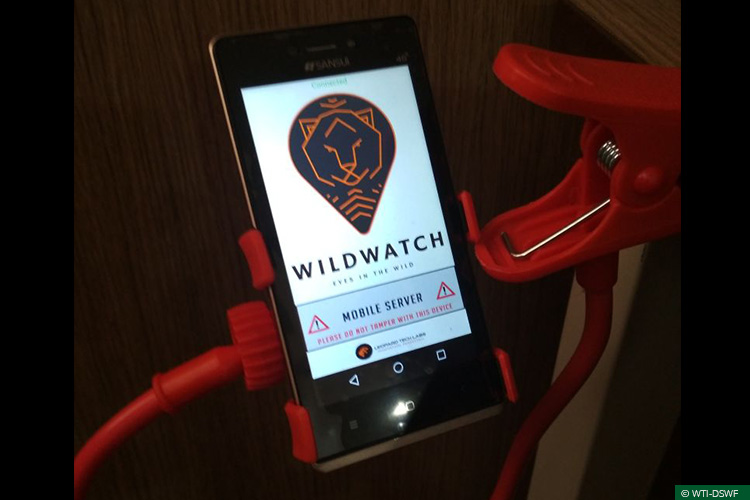
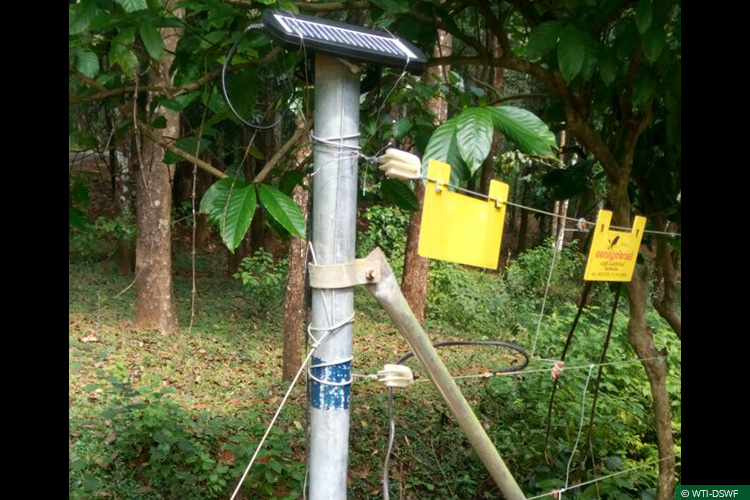
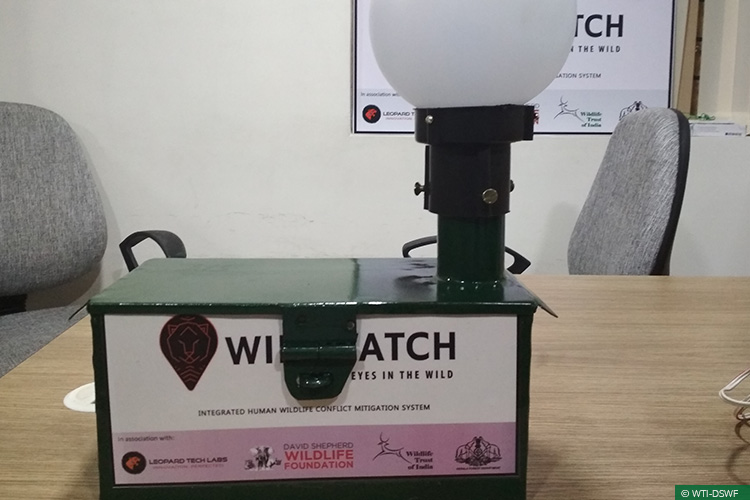
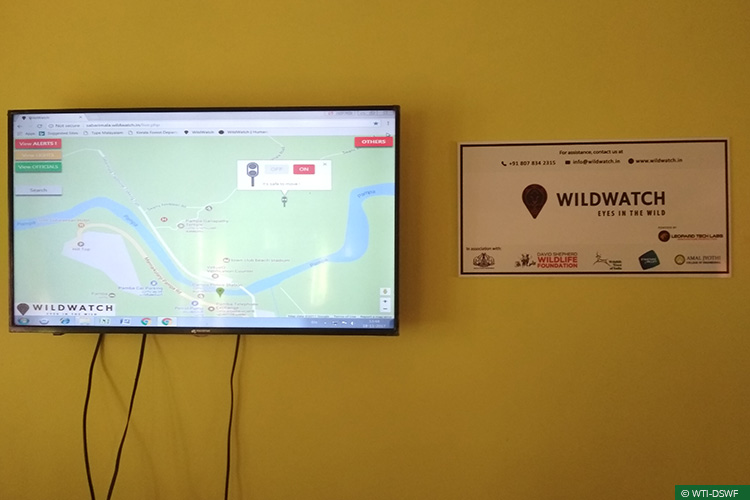
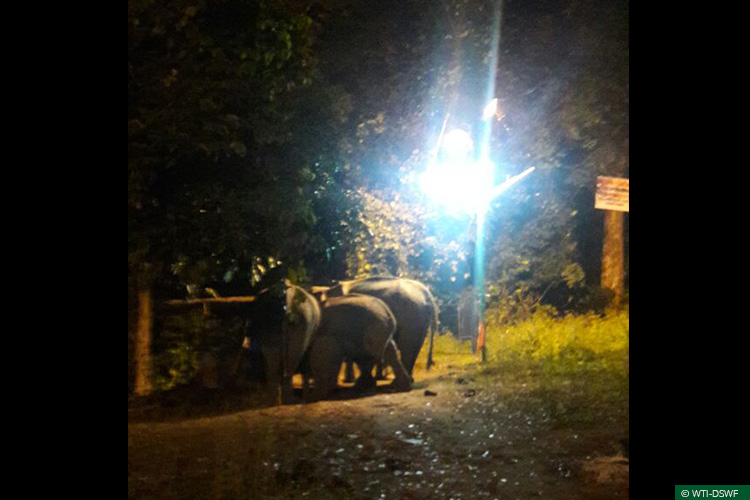
Periyar Tiger Reserve, Kerala, December 21, 2017: Wildlife Trust of India (WTI), with support from the David Shepherd Wildlife Foundation (DSWF), has partnered with a team of engineering students from Amal Jyothi College, Kerala, to create an innovative conflict mitigation tool in the form of a mobile app. Developed under a Rapid Action Project initiated by WTI’s Wild Aid division, the app, named ‘WildWatch’, consists of three modules: an SMS alert system, an early warning light system, and a fence monitoring module. It is currently being field tested along the route of the Sabarimala pilgrimage, which falls within Periyar Tiger Reserve in Kerala.
The renowned pilgrimage site of Sabarimala is frequented by 45-50 million devotees every year. The footfall reaches its peak during the the Mandala festival from mid-November to late December, with devotees taking a 61 km pilgrimage through dense forest and over steep hills to reach the shrine. As the shrine is located within a Protected Area and the number of devotees continues to surge year after year, several instances of human-wildlife conflict, particularly involving elephants, wild pigs and snakes, are reported. The urgent need for conflict mitigation measures in the area have made it a suitable testing site for the WildWatch app.
Developed under a Rapid Action Project initiated by WTI’s Wild Aid division, the WildWatch mobile app is an integrated Human Wildlife Conflict mitigation system
At the outset, the WTI field team trained frontline forest staff of Periyar Tiger Reserve, officials of the Motor Vehicle Department and members of the Devasam (shrine) board on the use of the app. A control room manned by experienced forest officials (Administrators) was established.
The functioning of the WildWatch system is fairly simple. Trained ground personnel with the app are positioned along the pilgrimage pathway. When a wild animal is encountered in close proximity to this route, the user can send real-time alerts with image and location details to the Administrators in the control room, who validate the alert and send in a response team or activate warning lights to ensure that pilgrims are kept out of harm’s way. Additionally, the fence monitoring module is programmed to detect voltage fluctuations on the fences installed along the pathway. The fluctuation indicates an animal intrusion and the Administrators, duly alerted, can take the appropriate corrective response.
The response received so far has been positive: over a period of 31 days, the team has received a total 57 alerts/cases (Bengal Tigers: 3, Asian Elephants: 20, Wild pigs: 3, Snakes: 31). These cases have involved tigers being sighted and monitored to ensure they were away from pilgrims, elephant herds being sighted and diverted from the pilgrimage pathway, and snakes rescued from the pathway, thus ensuring minimal disturbance to and the safety of both animals and the devotees. The app’s performance is being remotely monitored at the WTI headquarters in the National Capital Region.
With its immediate success, WildWatch has received positive attention in the local media. The team has also presented a live demo to Adv K Raju, the Kerala Forest minister, Mr K Raghavan, Devasam board member, Mr Fen Antony, Assistant Conservator of Forests and Mr CK Habbi, Divisional Forest Officer of Periyar Tiger Reserve, all of whom were impressed with the technology and WTI’s role in supporting the system’s development.
WTI will continue testing the app’s effectiveness at this site and, if the results continue to be positive, initiate plans to implement this technology on a larger scale across other conflict-prone states in India.